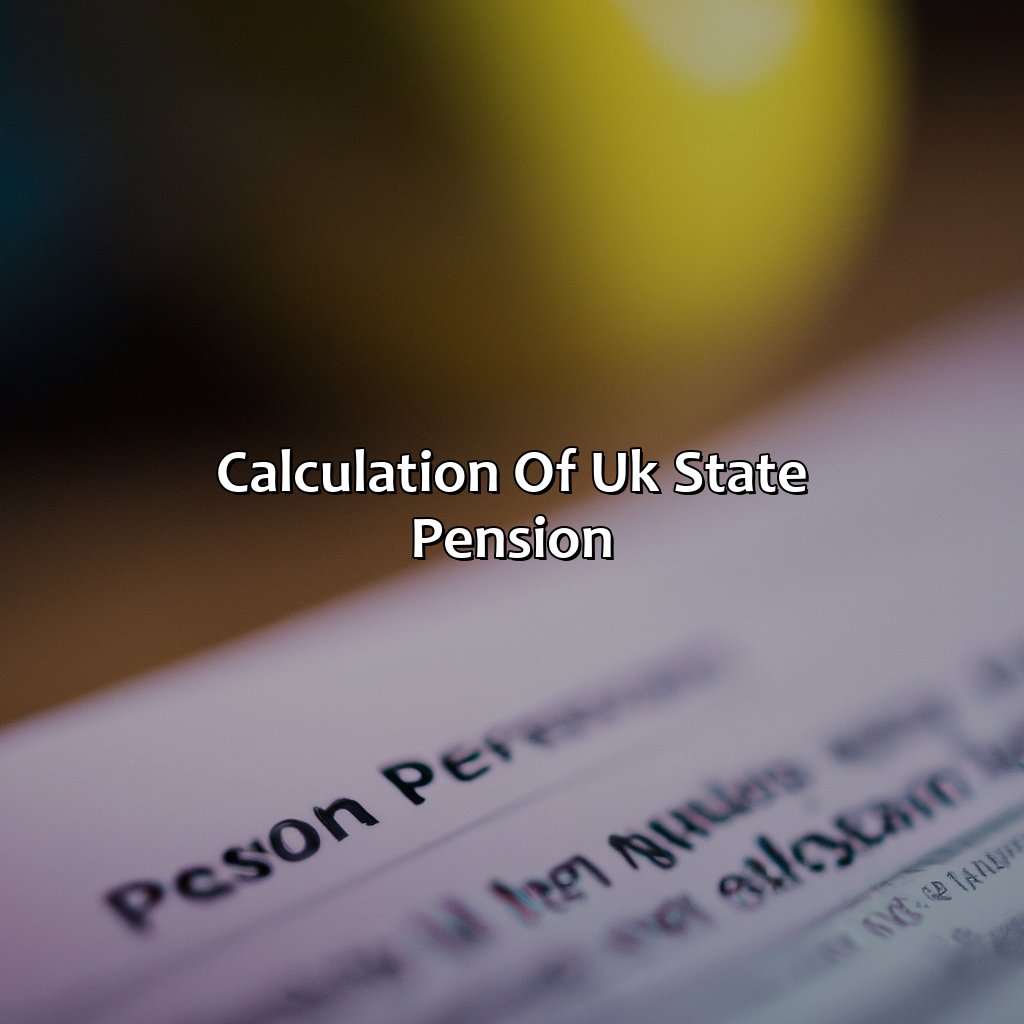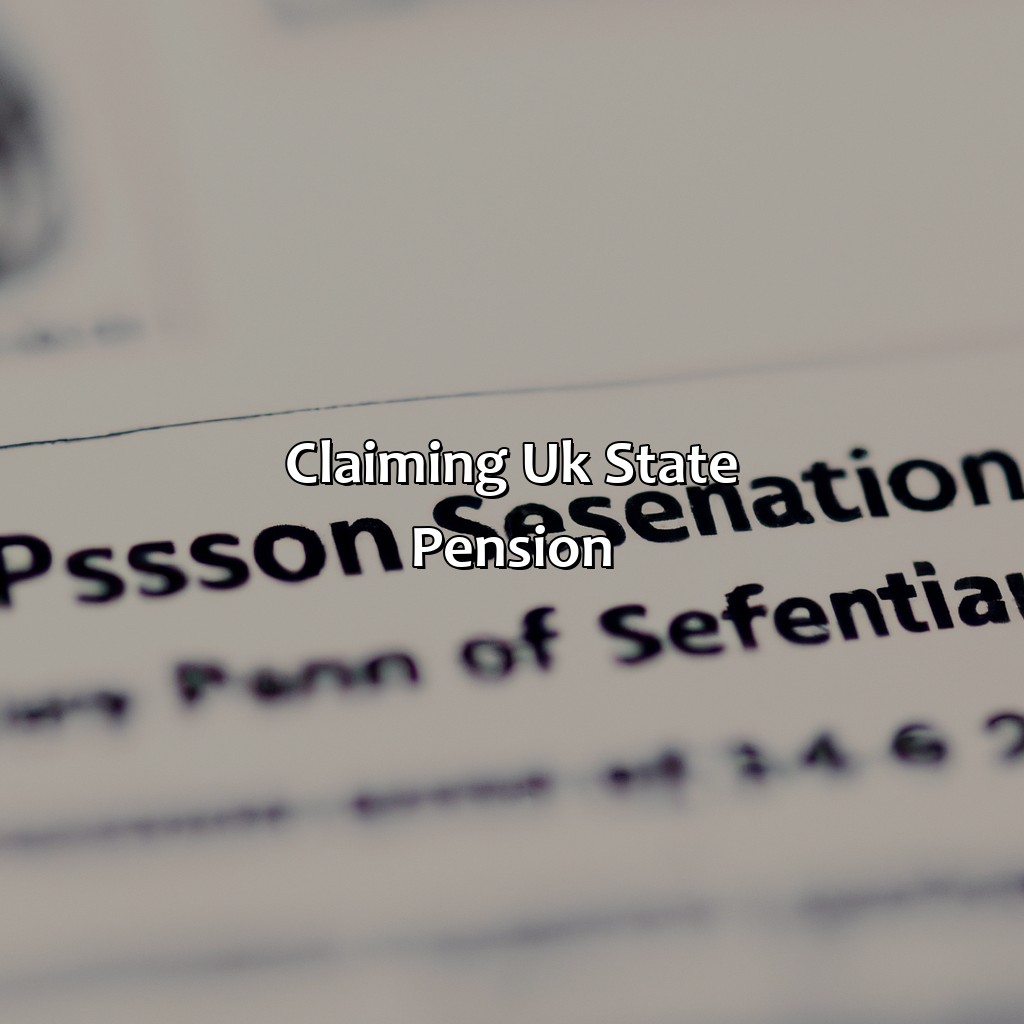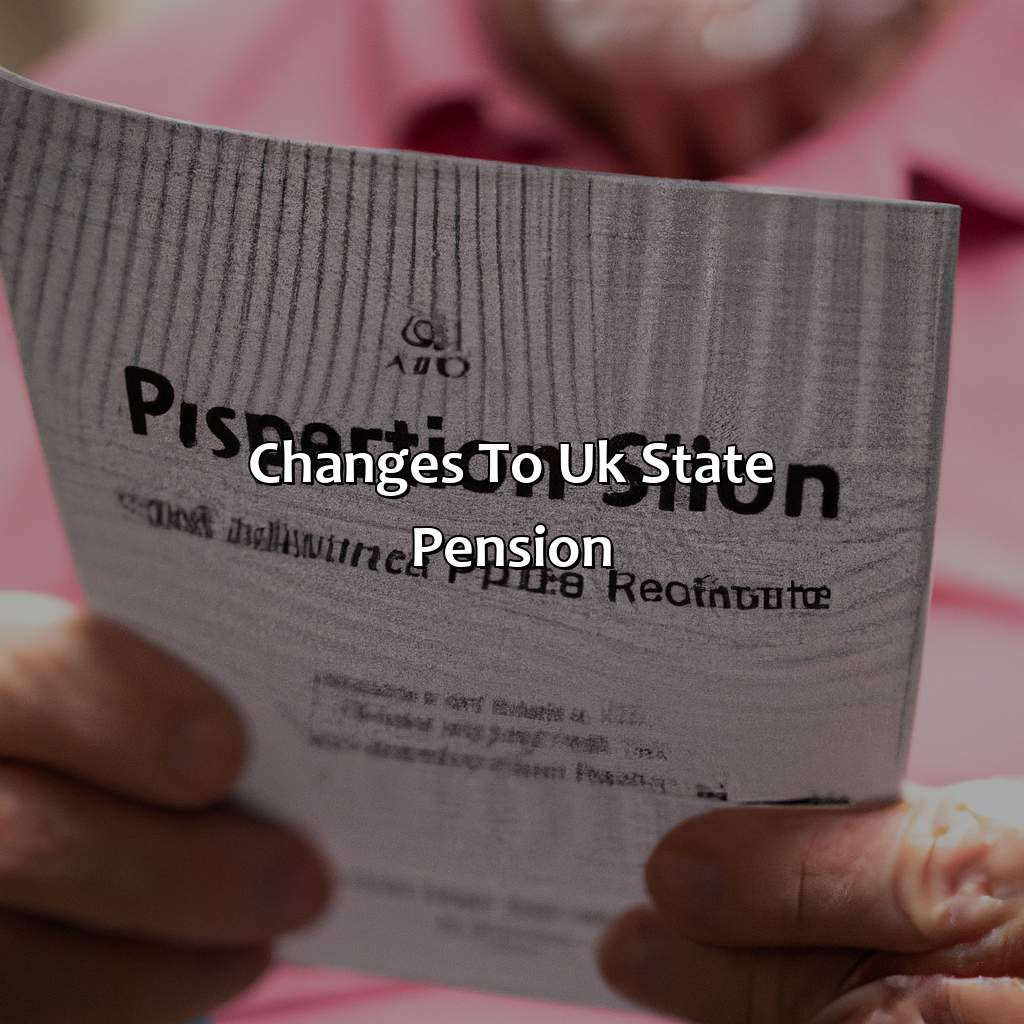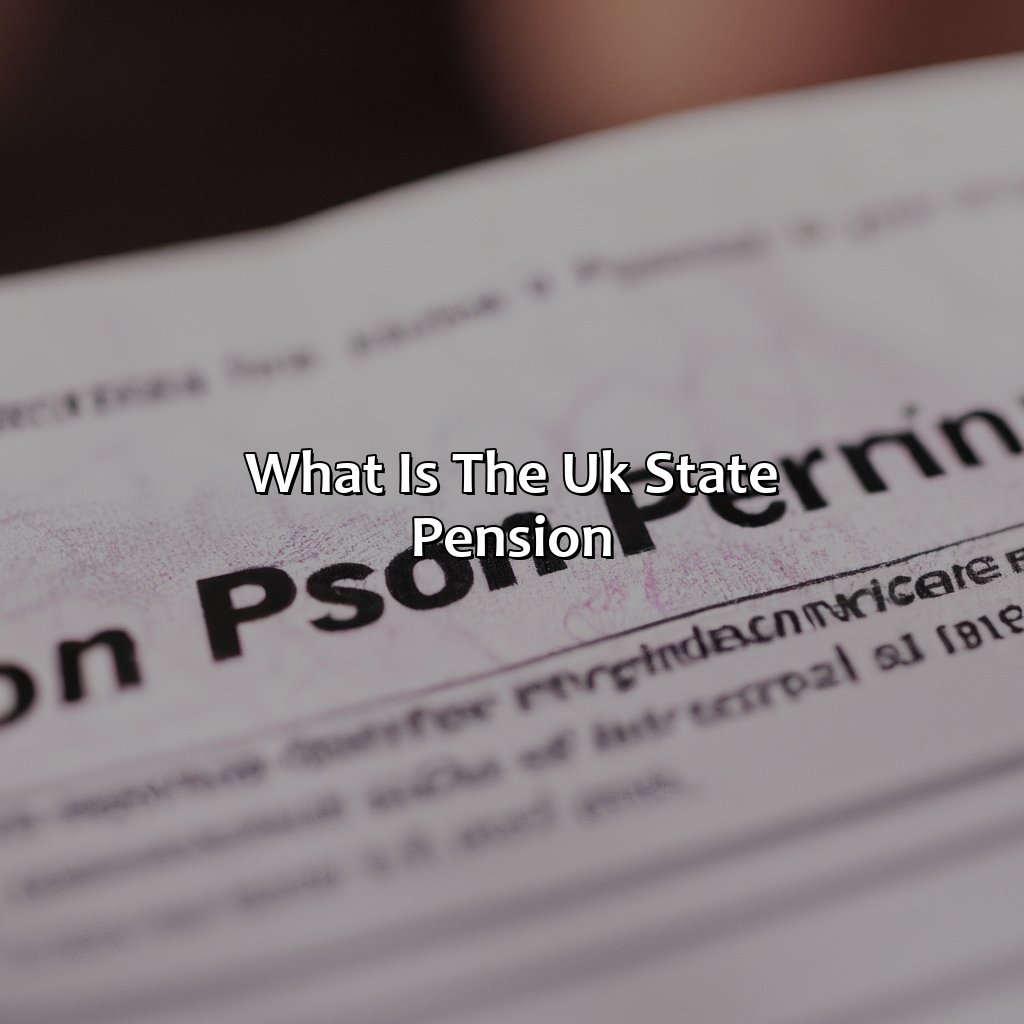What Is The Uk State Pension?
Key Takeaway:
- The UK State Pension is a regular income paid to individuals who have reached the State Pension age and have made National Insurance contributions throughout their working life. It is designed to provide financial security in retirement.
- Eligibility for the UK State Pension depends on an individual’s National Insurance contributions. Individuals must have made at least 10 years of contributions to be eligible for any pension, and 35 years of contributions to receive the full State Pension. Those who have not made sufficient contributions may still be eligible for a reduced pension.
- The UK State Pension is calculated based on the type of pension scheme an individual is enrolled in. The Basic State Pension is the oldest and most common scheme, providing a flat-rate pension based on an individual’s contributions. The Additional State Pension provides extra income based on an individual’s earnings, while the New State Pension is a simplified scheme introduced in 2016 that provides a flat-rate pension based on an individual’s National Insurance contributions.
Do you want to know the ins and outs of the UK state pension? You’re in luck; this article will provide you with an overview of the pension system in the UK and how it could affect you. With an aging population, it is essential to understand the state pension in order to plan for retirement.
Overview of UK State Pension
The state pension in the UK is a benefit paid to eligible retirees by the government. It is intended to provide a basic income to help cover the cost of living in retirement. The eligibility criteria include age and national insurance contributions. The current state pension age is 66 for both men and women.
This pension is not means-tested, so all eligible individuals are entitled to receive it. However, the amount received depends on the number of years a person has paid national insurance contributions and whether they have reached the full state pension amount. When the state pension increases also affects the amount received by eligible individuals.
It is important to plan ahead for retirement and understand how much pension income will be available. The government has introduced changes to the state pension system, such as the introduction of a new state pension scheme in 2016, which may impact entitlement. It is recommended to seek professional financial advice or use online tools to estimate pension income.
Don’t miss out on the benefits available to you in retirement. It is essential to understand the eligibility criteria and plan ahead to ensure you receive the maximum state pension amount.

Image credits: retiregenz.com by Harry Jones
Eligibility for UK State Pension
The qualifications for receiving the UK State Pension include meeting a minimum number of National Insurance Contributions (NICs) and reaching a specific age. You must have at least ten years of NICs to receive a partial pension and at least 35 years to receive a full pension. The state pension age is set to increase by 2028 for both men and women. After the age of 65, you can request a deferment of the pension to receive an increased payment later.
Pro tip: Keep a record of your NICs to ensure you receive the correct entitlement for your UK State Pension.

Image credits: retiregenz.com by Adam Woodhock
Calculation of UK State Pension
Easily calculate your UK state pension! This section provides the basics of the Basic State Pension, Additional State Pension, and New State Pension. Each sub-section has unique elements to help you calculate your pension. Find out which state pension applies to you based on your circumstances.

Image credits: retiregenz.com by David Washington
Basic State Pension
The Standard UK Pension is a fundamental state pension plan that provides financial assistance for individuals in retirement age. This pension plan depends on the person’s National Insurance contributions during their working career and their eligibility age bracket. The current State Pension amount stands at 179.60 per week, which is reviewed annually based on inflation rates.
Many factors determine your State Pension payment, including your employment history, average national insurance contributions, and whether you paid voluntary national insurance contributions. Additionally, if your spouse or partner did not work, you can apply for additional benefits they may be entitled to that can aid with living expenses.
Contrary to popular belief, unclaimed pensions are relatively common among retirees who forget or lose track of a previous employer’s pension scheme. Therefore, keeping up-to-date records of previous pensions and notifying each provider of any future change of address will help avoid any unforeseen circumstances about unpaid pensions.
My friend Sarah had been struggling to make ends meet after retiring as she only received her standard State Pension payment. After searching through some old documents at home, she found an unclaimed pension from her last job before retirement and applied for it immediately. It turned out be four times higher than what she was currently receiving, ensuring a more comfortable life in her golden years. If you’re wondering when you will receive your state pension, make sure to check your records and claim any unclaimed pensions you may be entitled to.
Looks like the UK government wants to give us all an extra pension…or maybe they just need a little help keeping warm in their mansions.
Additional State Pension
The Extra State Pension is a supplementary benefit, awarded based on earnings and National Insurance contribution. It is available for people who reached State Pension age before 6 April 2016 or/and had certain historic reasons to claim it. The additional pension is paid alongside the Basic State Pension as well as the New State Pension. In contrast to the standard pension schemes, the amount of the Extra State Pension depends on one’s employment history and contribution made towards National Insurance during that period.
Adding an employee to a workplace pension scheme and contributing enough into it can eliminate any need to worry about investigating Extra State Pension opportunities altogether. However, should an individual choose to investigate further? We suggest that people research in-depth when considering retirement planning options, including the possibilities that provide a pension for employees based on their particular working history. Additionally, consulting with a qualified financial adviser could provide guidance on specific retirement needs and identifying all related relevant factors.
Why settle for a ‘new’ state pension when you can just move to a ‘newer’ country and start fresh?
New State Pension
The latest revised version of the State Pension is designed to enable the retirees to acquire a fixed income, without having to worry about any additional fringes. It is calculated based on the National Insurance Contributions (NIC) you have accumulated throughout your career. The qualification criteria for the New State Pension primarily relies on an individual’s NIC record.
One crucial feature of this newer pension scheme highlights that it will not be affected by any gender-based or socioeconomic biases. The new system allows people who fall eligible to obtain a sum of 175.20 per week, keeping in view their work record and weekly contributions made towards NICs over the course of their career. Do you want to know more about S pension?
Pro Tip: Before retirement, people are well advised to gain access to an online service that shall assist them in informing how much they might receive after achieving State Pension age. If you’re wondering how to find your pension information, this article can be helpful.
Getting old may not be fun, but at least claiming your UK State Pension is easier than getting your grandkids to call you back.
Claiming UK State Pension
If you have reached State Pension age and have enough qualifying National Insurance contributions, you can claim your UK State Pension. The claiming process is straightforward and can be done online through the government’s website or by filling out a paper claim form.
It is important to note that the amount you receive in State Pension is determined by your National Insurance contributions, with a full state pension requiring at least 35 years of contributions. The claiming process can take up to 12 weeks, so it is important to apply for old age pension in advance.
Additionally, you can choose to defer your State Pension until you reach an older age which can increase the amount you receive. However, it is important to carefully consider the financial implications of having multiple pension plans in the US.
To ensure a smooth claiming process, double-check your eligibility, gather all necessary documentation, and consider seeking advice from a financial advisor. With proper planning and preparation, you can easily claim your UK State Pension.

Image credits: retiregenz.com by Yuval Arnold
Changes to UK State Pension
There have been significant modifications to the UK State Pension system over the years. These updates were introduced to ensure that it provides a secure financial future for retirees. The legislative changes have been implemented with the aim of encouraging people to have an active role in designing their retirement plans.
One of the most notable changes was the new State Pension introduced in 2016. The new system replaced the previous complicated model, making it easier for individuals to understand how their entitlement was calculated. Moreover, it removed disparities between men and women’s benefits, preventing gender inequalities.
\n\nIf you’re wondering about your own pension plan, you may want to know what is EE pension. It’s important to be informed about your own retirement benefits, so be sure to do your research.
It is worth mentioning that the new State Pension rules require a minimum of ten qualifying working years to receive anything at all. Additionally, the amount an individual receives is calculated on their National Insurance records. As a result, it is essential for individuals to keep track of their National Insurance records.
To ensure that you do not miss out on receiving the State Pension, it is important to have a clear understanding of the intricate details and updated regulations. There are various resources available online that can help keep you informed about any changes made to the system. Stay proactive about tracking your eligibility so that you can financially plan for a comfortable retirement.

Image credits: retiregenz.com by Joel Jones
Private Pensions and the UK State Pension
Private Pension Schemes and UK State Pension are important for financial security in retirement. Private pensions are voluntary pension plans that individuals can contribute to, while the UK State Pension is a mandatory pension scheme funded by taxes and National Insurance contributions.
Private pension schemes have varying terms and conditions, and individuals can choose to invest in different pension products, such as defined benefit and defined contribution schemes. In contrast, the UK State Pension provides a universal benefit to eligible individuals, based on their National Insurance contributions, and is subject to a yearly increase. It is important to understand the differences and benefits of both types of pensions for adequate retirement planning. Learn more about who manages pension funds and make informed decisions about your future.
Furthermore, it is worth noting that in the UK, women live longer than men on average and therefore may require more financial support in retirement. According to the Office for National Statistics, the female life expectancy is 83 years compared to 79 years for males. A gender pay gap may also impact women’s savings capabilities, making it all the more important to consider retirement planning options such as private pensions and the UK State Pension.
Impact of Brexit on UK State Pension
Brexit’s Impact on the UK State Pension
Due to Brexit, the impact on the UK State Pension has been a topic of concern. The changes in policy may potentially affect the income of UK pensioners.
With the UK’s departure from the EU, some pensioners living outside of the UK may face a reduction in their state pension. The “triple lock” pension guarantee may also be amended.
It is worth noting that the UK government has assured that state pensions will continue to rise each year even after Brexit.
True fact: In 2021, the UK state pension increased by 2.5% in April, under the “triple lock” pension guarantee. (source: BBC News)

Image credits: retiregenz.com by James Woodhock
Five Facts About the UK State Pension:
- ✅ The current UK state pension age is 66 for both men and women. (Source: Gov.uk)
- ✅ To be eligible for the full UK state pension, you need at least 35 qualifying years of National Insurance contributions. (Source: Money Advice Service)
- ✅ The UK state pension is taxable income. (Source: HM Revenue & Customs)
- ✅ The UK state pension provides a foundation of income in retirement, but most people will need additional savings or private pensions to support their lifestyle. (Source: The Pensions Advisory Service)
- ✅ The triple lock system ensures that the UK state pension increases annually by the highest of inflation, average earnings growth, or 2.5%. (Source: The Guardian)
FAQs about What Is The Uk State Pension?
What is the UK state pension?
The UK state pension is a regular payment made by the government to eligible citizens who have reached the state pension age. It is designed to provide retirees with an income in their later years to help them cover their living expenses.
Who is eligible for the UK state pension?
To be eligible for the UK state pension, you must have made enough National Insurance contributions during your working life. You must also have reached the state pension age, which is currently 66 years old for both men and women.
How much is the UK state pension?
The amount you receive from the UK state pension depends on your National Insurance record. The full state pension is currently 175.20 per week, but you may get more or less than this depending on your circumstances.
Can you receive the UK state pension if you live abroad?
Yes, you can receive your UK state pension if you move abroad, but there are some conditions. You must have made enough National Insurance contributions to qualify, and the amount you receive may be affected by the country you move to and how long you have been living there.
When can I start claiming my UK state pension?
The age at which you can start claiming your UK state pension depends on when you were born. Currently, the state pension age is 66 years old for both men and women, but it is set to rise to 67 by 2028 and 68 by 2039.
Can I defer my UK state pension?
Yes, you can defer your UK state pension if you want to. If you defer, you can receive a higher weekly payment when you do start claiming. However, the extra amount you receive may be taxable, and you should consider any knock-on effects it may have on your other benefits.
